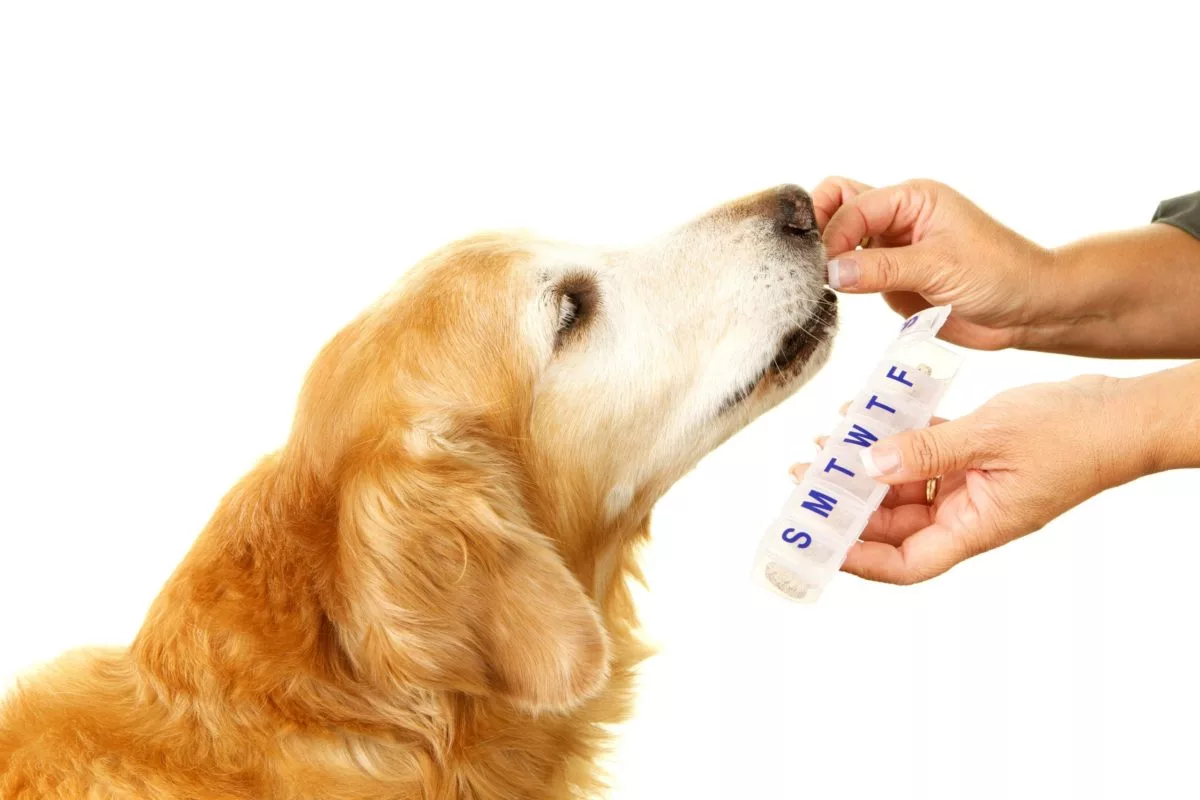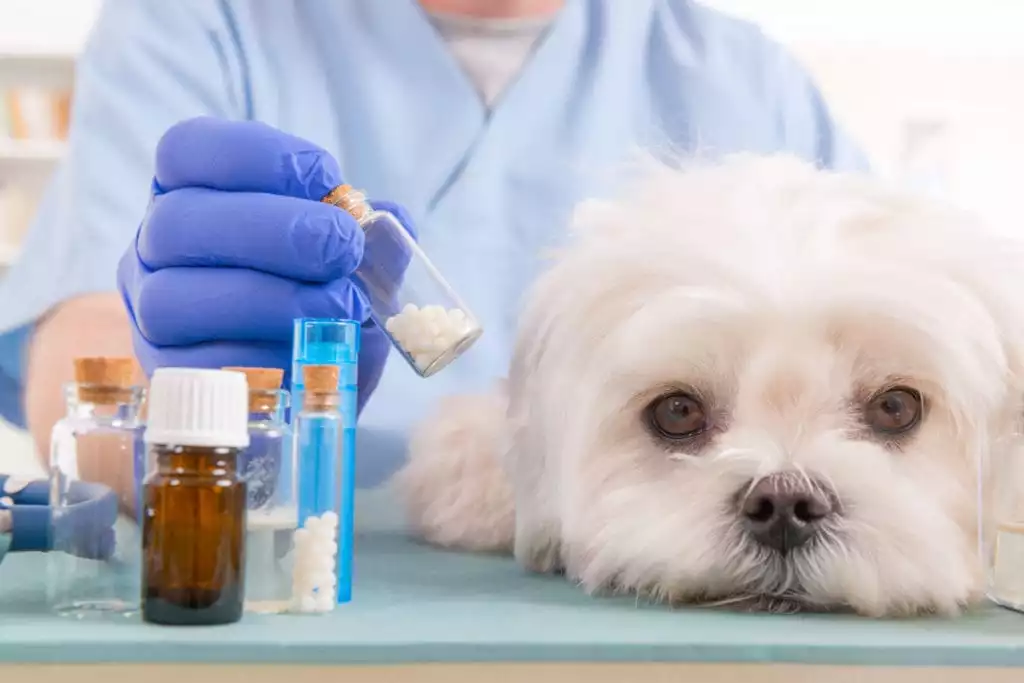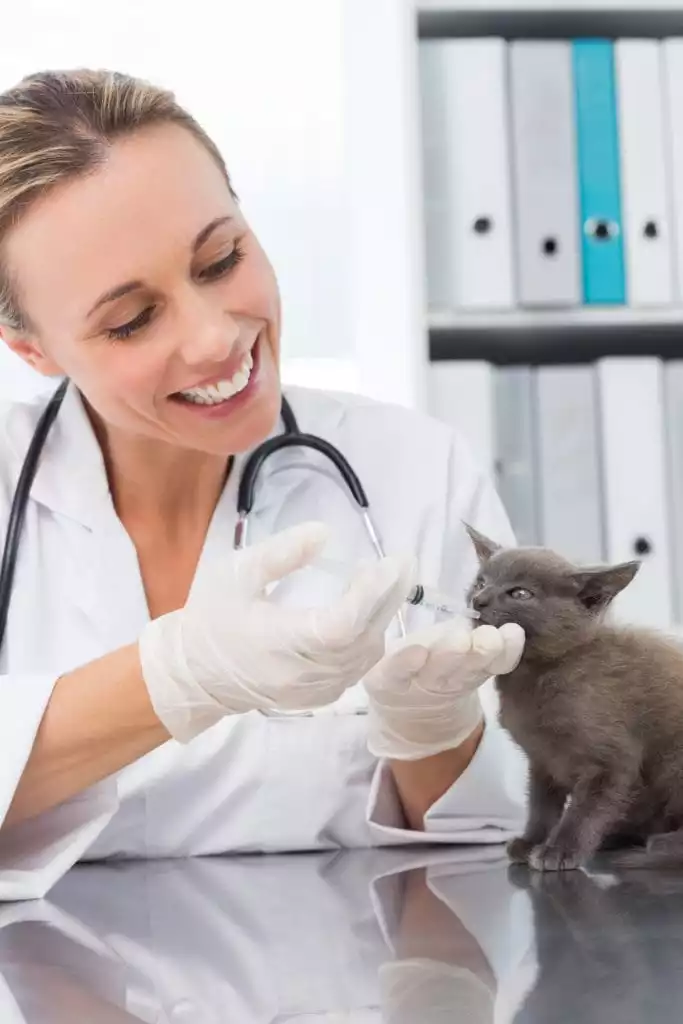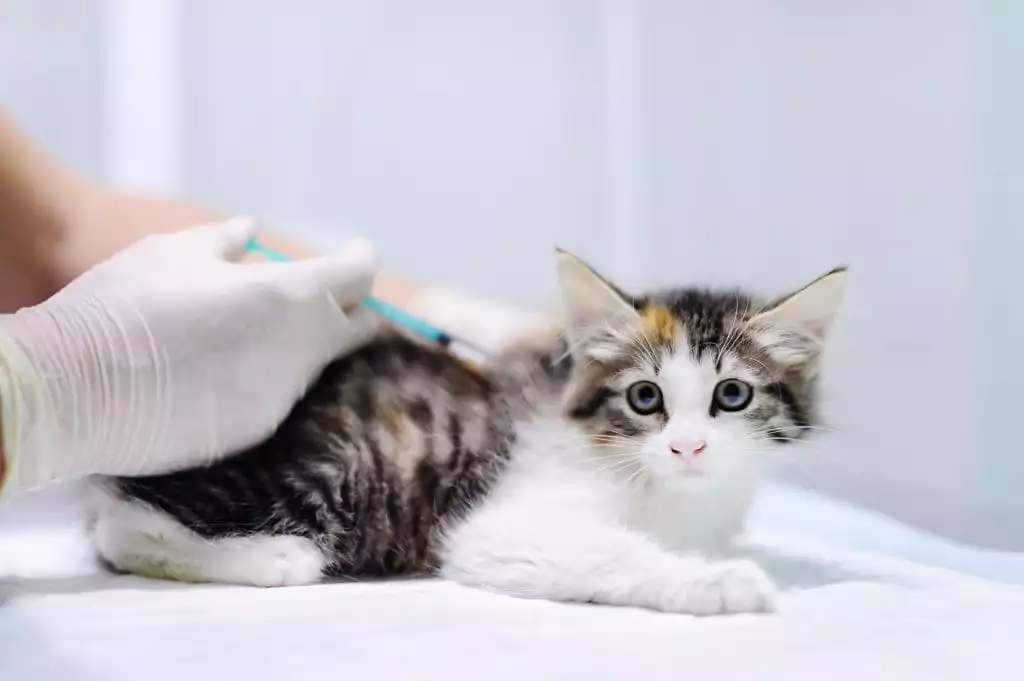
Pharmacies have the legal right to fill prescriptions for animals or humans as long as the prescription is written by a doctor or veterinarian. All you need to do is bring the prescription in to the pharmacy to have it filled. Veterinarians work closely with a local veterinary compounding pharmacy to help pet parents access the medications they need to keep their pets safe, healthy, and well.
Often, pet parents are surprised to learn that they can fill prescriptions at the local pharmacy. They may believe pharmacies don’t work with animals, or if they’re aware, they may think it’s actually more expensive than filling the prescription at the vet’s office instead. At the end of the day, filling your pet’s prescription at a human pharmacy is usually cheaper, faster, and more flexible, too.
Sometimes, filling your pet’s prescription at a pharmacy isn’t just an option – it’s required. This is often the case when pets need medications that aren’t commercially available in standardized doses. A veterinary compounding pharmacy helps pet parents address these concerns safely and reliably.
What is a Veterinary Compounding Pharmacy?
To understand exactly what a veterinary compounding pharmacy does, we must first understand what happens in a standard pharmacy.
In the Pharmacy
When you bring a prescription in, the pharmacist assesses it for validity and safety concerns, including cross-matching it to other current prescriptions for something called “contraindications” (dangerous interactions). He or she then identifies the brand or commercial medication that best matches the medication prescribed.
Assuming the medication already exists, the pharmacist fills it and provides the patient with information on how to safely use their medication.
All is well – unless the patient has unique needs.
Prescription Standardization Struggles
Commercially-available medications are created using standardization. All dosage options and formats adhere to a standard that best suits the needs of the average patient. Standardization (sometimes referred to as quality control) allows drug manufacturers to quickly, safely, and accurately mass-produce drugs for the general population.
Unfortunately, standardized drugs come in very specific doses, and those doses aren’t always right for every patient. Sometimes, patients have allergies, require altered doses, or can’t take drugs in the format they come in (e.g., a pill) because they can’t swallow. Others may struggle with inappropriate dosage formats (e.g., pills, patches, or creams) because it inadequately addresses their condition. Or, they may take multiple medications and require combination treatments instead.
These unique health situations present special challenges, especially for pet parents and veterinarians. There are far fewer pet drug manufacturers than human pharmaceutical manufacturers, meaning options for non-standard requests are often few and far between. Pet parents may find themselves struggling to access the right treatment for their pet’s condition without introducing serious potential side effects or risks.
When pets (or even humans) have unique treatment needs, they often require non-standardized medications made from scratch. Unfortunately, drug manufacturers simply cannot address the needs of the individual patient in this way; their job is to mass-produce medications that address the needs of the general populace rather than every single individual. That’s where the veterinary compounding pharmacy comes in.
The Answer: Compounding
To resolve the issue of unique medication needs, compounding pharmacies take up the task and become micro-manufacturers instead. Whereas standard pharmacies simply provide access to commercial medications, compounding pharmacies use base ingredients to hand-craft the medication instead. It becomes infinitesimally easier to adjust dose, dosage format, or ingredients on a case-by-case basis.
A veterinary compounding pharmacy refers to compounding pharmacies that explicitly work with pet or animal medications in addition to human medications. Rather than being a specific type of pharmacy, veterinary compounding is a provided service instead.
Examples of Compounding
Veterinary compounding is much more common in the veterinary medicine world than most pet parents realize. Even veterinarians rely on it for fast and accurate access to medications that either aren’t formulated for humans or aren’t FDA-approved in the specific doses required.
Any time a pharmacist manipulates medication in some manner, he or she is effectively engaging in compounding to create a brand-new formula. For the purposes of regulation, the American Veterinary Medicine Association (AVMA) defines manipulation as “mixing, diluting, concentrating, flavoring, or changing a drug’s dosage form.”
In practice, this may include:
- Creating multi-drug pills, topicals, liquids, or injections
- Crushing, breaking, or splitting tablets into smaller doses
- Creating oral suspensions and/or liquids from solids or powders
- Creating topical or transdermal creams, salves, and gels from solids
- Making standardized or compounded medications taste better with flavoring
- Creating eye drops, ear drops, suppositories, or otic sprays from drugs
- Using a pill press to create tablets from base ingredients for pet patients
- Placing medications into pre-sized gelatin capsules with patient-specific doses
- Providing you with Expanded Access (unapproved) veterinary medications
Is Veterinary Compounding Safe?
Pet parents are often concerned by the fact that most compounded veterinary medicines aren’t FDA-approved. This leads to them asking whether compounding is safe, reliable, or has regulations at all.
Veterinary compounded medicines may not be FDA-approved, but that’s only because they qualify as an exception to FDA regulation. This difference is not an indicator that the medications provided are in any way unsafe; instead, safety is the responsibility of the pharmacy itself.
All American compounding pharmacies (veterinary or otherwise) must still adhere to strict protocols and regulations. These regulations oversee the pharmacy when filling, making, and providing medication to patients. This includes state and federal legislation under the Compounding Quality Act (CQA) and your State Board of Pharmacy. These regulations specify processes to protect the compounding process (purity, ingredients, sources and doses) and the final compounded products. This ensures that every licensed veterinary compounding pharmacy adheres to only the highest standards when making medication.
Which Pets Benefit from Compounding?
Any pet that takes medication (regardless of species) can benefit from compounded pet medications. In fact, some particularly sensitive animals like fish, reptiles, and insects can only be treated with compounded medications. This is because human medications would simply be far too strong for them. That said, it is more common to see prescriptions for very specific animals in a veterinary pharmacy:
- Dogs
- Cats
- Horses
- Birds
- Mice
- Rats
- Hamsters
- Rabbits
- Snakes
- Lizards
Compounding is also fairly common for pet parents who keep livestock like cows, goats, and chickens as family pets or hobby animals. The only exception is when these animals are kept as food stock; then, FDA regulations for food stock animals prevent the use of compounded medications in favor of specific commercial drugs instead.
Do I Need a Prescription for Veterinary Compounding?
Maybe. Whether or not you need a prescription to access your pet’s veterinary medicine depends on whether or not that medicine is deemed a prescription access medication in the first place. If your vet recommends a modified over-the-counter (OTC) drug, the pharmacist may not require a prescription to compound it for you.
If the suggested medication requires a substance only accessible by prescription, the pharmacy must have a prescription on file before they can fill it for you.
A Note on Safety
Pet parents should never give pets any medication (compounded or otherwise) without verifying its suitability with a veterinarian. Pets are exceptionally sensitive, and often, human medications like Aspirin, Tylenol, and Aleve can cause them a great deal of harm. Never give your pet a previously compounded medication made for a different pet, for you, or for someone else in your household. It’s just not worth the risk.
If you suspect your pet may be struggling with a health condition or may need medication, your veterinarian is your best first line of defense. See your vet for a thorough check-up and examination to determine the cause of your pet’s struggles. If your vet prescribes compounded medications, or if you have any other questions about veterinary compounding, contact your local pharmacy for advice.

 info@burtsrx.com
info@burtsrx.com


